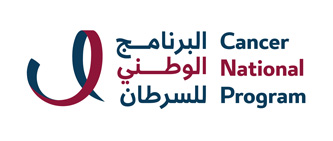



Screening refers to the use of simple tests across an apparently healthy population in order to identify individuals who have risk factors or early stages of disease, but do not yet have symptoms (WHO, 1968).
The National Cancer Program (NCP) of the Ministry of Public Health (MoPH) was appointed to introduce comprehensive and organized, population-based screening programs for breast, bowel, and cervical cancers in 2011.
National Cancer Screening Programs were established to reduce mortality rates caused by the disease and have a positive impact on the probability of the occurrence of cancer. In addition to attaining better treatment outcomes. To achieve that, it is essential to have a robust quality assessment system around the screening program which makes independent, evidence-based recommendations by developing the screening performance monitoring management.
The first national breast and bowel cancer screening program was inaugurated on 17th of January 2016 at Al Wakra Health Center. It features a custom designed suite to provide services in a safe, comfortable environment. A second screening center and a mobile van were launched in the Leabaib Health Centre on the 12th of April 2016 to further increase the screening coverage. Moreover, the Rawdat Al-Khail Health Centre was opened in November 2016 and inaugurated to deliver a comprehensive population-based breast and bowel cancer screening service in the State of Qatar.
Breast Cancer Screening Program is a population-based screening program with the purpose of finding cancers of the breast as early as possible. The program encourages average risk (asymptomatic) women between the ages of 45-69 to participate in routine screening mammography at one of the healthcare centers.
Aims:
Bowel cancer screening is an effective way of detecting bowel cancer at an early stage and of preventing cancer from developing. In Qatar, the bowel screening service uses Faecal Immunochemical Test (FIT) to identify hidden traces of blood in stools. The testing kit can be done in the comfort of the patient’s home.
Aims:
The NCP has established clear guidelines on breast, bowel and cervical screening by identifying the target and eligible screening population and the corresponding screening intervals. The three cancer screening guidelines for breast, bowel and cervical have been created, completed, and published in 2015/2016 in consultation with various stakeholders of the screening service.
The Screening Key Performance Indicators is developed to ensure standardization and comparability of data across the national screening program. It is designed to help make data collection more efficient, and more effective, by ensuring that the information collected is fit for purpose.
The objectives of the national KPIs:
To support the performance and monitoring of the National Cancer Screening Program, Cancer Screening Registry has been established to identify the comprehensiveness and impact of screening programs and to inform the established Qatar National Cancer Registry.